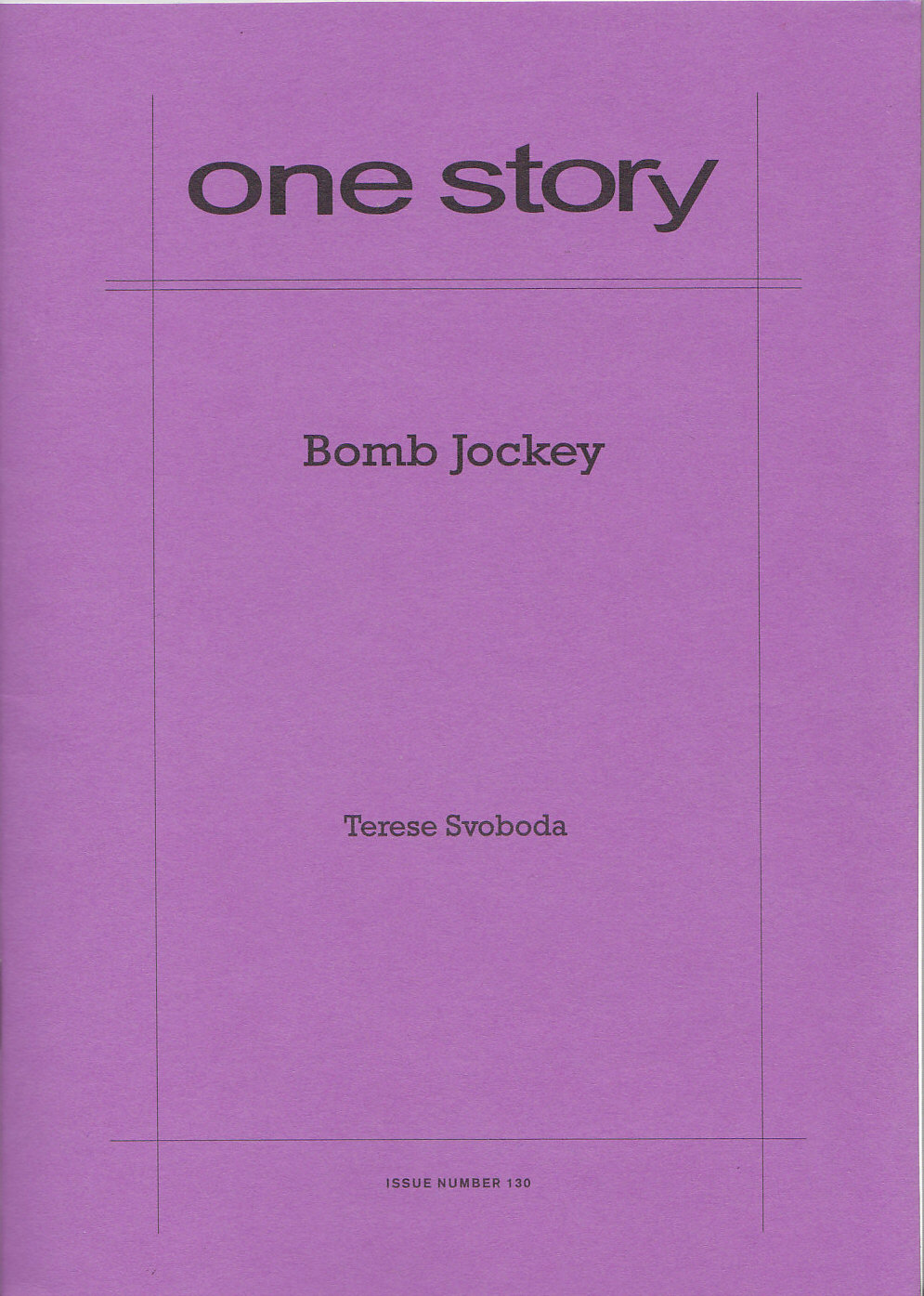
Bomb Jockey
$2.50
Sold out
Excerpt
The town kicked up its legs, put on an actual parade for all those who’d decide which town got the bomb works, her daddy being one of the deciders, a tall heavy-nosed state politician who looked good in a suit when others didn’t. His wife came along for the parade, and their daughter handed out flyers coincidental with the next election.
Hump took two.
The other guys kept their hands in their pockets once they Thank you ma’med her. Hump didn’t even look at the flyer before he wanted another. Known as Hump to his face, a face that looked enough like John Wayne’s that some people thought he should get a rope and start in with a lariat, if not a horse, he was not as shy as he could have been since you don’t get to be eighteen looking like that without some serious experience. A Marybeth was trying to wound him grievously by applying for a job in the next town, a Collette slunk around in a long dress in this 95 degree parade weather in the middle of a float that read: We’re ready if you are, and a Nancy wore nothing under her band jacket just in case.
Terese Svoboda
Terese Svoboda is the author of eleven books of poetry, prose, translation and memoir. Trailer Girl and Other Stories, her third novel, is being reissued in paper this fall. “Unnerve thyself: the violent and enthralling short stories in Trailer Girl detonate on contact,” writes Vanity Fair. Her memoir Black Glasses Like Clark Kent was termed “Astounding!” by the New York Post and selected as a Japan Times “Best of Asia 2008” book and won the Graywolf Nonfiction Prize. Praised as a “fabulous fabulist” by Publishers Weekly for her fourth novel, Tin God, Vogue lauded her first, Cannibal, as a female Heart of Darkness. Svoboda is also the recipient of the Bobst Prize (for Cannibal), the Iowa Prize for poetry and the O. Henry Award for the short story. Her work has been selected for the “Writer’s Choice” column in the New York Times Book Review, a SPIN magazine book of the year, and one of the Voice Literary Supplement’s ten best reads. Her fifth and sixth novels are scheduled to appear in 2010 and 2011.
Q&A by Hannah Tinti
- HT: Where did the idea for this story come from?
- TS: In 2002, one thousand dump trucks emptied earth ten percent more toxic than national standards next to my father’s farm in Nebraska. It had come from the Black Hills Army Depot that had chromium crystals 41,000 times more concentrated than the chromium Brockovich complained about in her movie. They were “remediating” it because they wanted to sell the land. For some reason, they couldn’t leave it where it was. I did a lot of research about BHAD—all bad. But nobody wanted to read another terrible environmental story. For years I wondered how to attract attention to the Army’s malfeasance. A love story as back story?
- HT: What was the most challenging aspect of writing this story?
- TS: Having too much information.
- HT: Can you tell us a little about the title?
- TS: The BHAD repaired and maintained ordnance. Hump, the main character, has his arms around his girl when he thinks about how he’s “not standing there waiting for the bombs to hit me, I’m actually putting my arms around them.” He’s the WWII Dr. Strangelove.
- HT: The attention to language and lyrical style in this story is very strong. Do you bring your work as a poet to mind when you are writing prose, or do you consider them separate animals?
- TS: All the animals live in the same zoo.
- HT: Why did you choose not to name Hump’s girl in the story?
- TS: I have this theory that in close third person, people don’t think about other people in terms of their names. But she is named. A nurse calls her by name in the last clinic scene.
- HT: There is a great deal of unacknowledged danger in this town—the bombs, the mercury, even the bull—did you intentionally weave it through as a metaphor, or did it just turn out that way?
- TS: This is a fifth of Great American Desert, a full-length novel set in the Midwest, in which the land poisons people. Of course people poison land but land is inert and can’t be killed so it’s really people poisoning themselves. The land remains. Death and sex—what a lot of dirt!
- HT: Where do you see Hump and his girl going from here? Will you continue writing about them?
- TS: Hump does not survive. I guess that’s implicit in the ending. His girl is pivotal later in the book as a relative to the characters who find themselves watching the thousand trucks arrive.
- HT: How long did it take you to complete this story?
- TS: Seven years. Then I rewrote it extensively for One Story.
- HT: What are you working on now?
- TS: I just finished Great American Desert, the novel that contains the story. I’ve almost finished another called Scylla and Her Sister, a contemporary version of Odysseus’ temptation. My fifth novel, Pirate Talk or Mermalade, will be published this fall, and Bohemian Girl, my sixth novel, will be published in 2011.
- HT: What is the best bit of advice about writing you have ever received?
- TS: Low rent—Grace Paley.